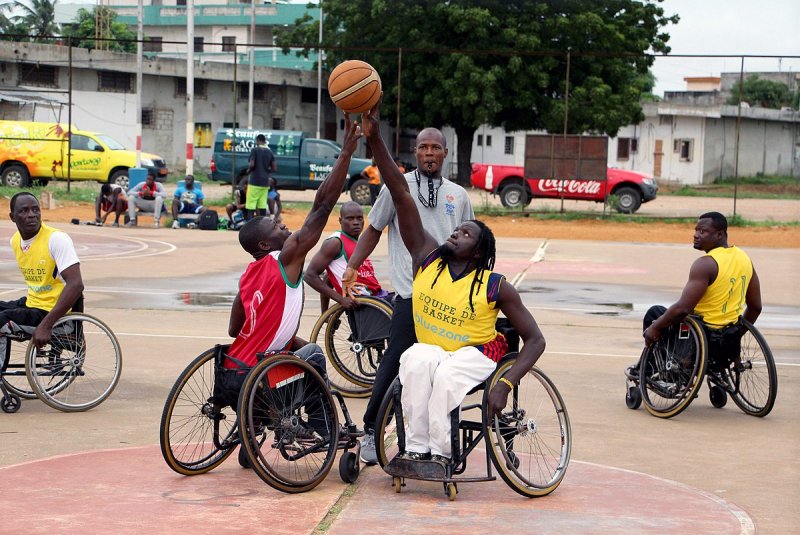By CIPESA Writer |
Today, the GSMA, a group that represents the interests of mobile operators worldwide, has launched the ‘Principles for Driving the Digital Inclusion of Persons with Disabilities’, which aim to inspire the mobile industry to help close the mobile disability gap.
Announced on the International Day of Persons with Disabilities, December 3, 2020, the Principles set out a framework for action, as well as recommended activities to help address the barriers that currently prevent persons with disabilities from accessing and using mobile-enabled products and services. According to research conducted by the GSMA, many persons with disabilities are less likely to own smartphones and use mobile internet than persons without disabilities.
The Collaboration on International ICT Policy for East and Southern Africa (CIPESA) is honoured to have endorsed the principles at their launch. The mobile industry plays a critical role in our communities, hence it is of utmost importance that it takes definitive measures to promote inclusion and accessibility of its products and services. In Africa, most mobile operators still have work to do to ensure persons with disabilities are fully included.
“The Principles are practical and comprehensive, and will hopefully gain robust uptake by the industry. They offer civil society and other actors a clear and standardised tool by which to assess the industry’s performance on key inclusion benchmarks,” said CIPESA Executive Director Dr. Wairagala Wakabi.
World Health Organization figures show that around 15% of the world’s population or one billion people worldwide live with a disability. Yet, only 1 in 10 people has access to the assistive technology they need to live independent lives. The GSMA notes that, by combining multiple assistive technologies in a single device, mobile phones can be cost effective tools to enable greater inclusion and participation for persons with disabilities.
The Principles call for action to address the barriers and requirements of persons with disabilities, drive innovation, place persons with disabilities at the heart of the design process and realise the social and commercial opportunity of reaching this underserved segment of the population. By doing so the mobile industry can make meaningful change and help ensure no one is left behind in an increasingly digital world.
“Removing the barriers faced by persons with disabilities requires informed action from all stakeholders,” said Mats Granryd, Director General of the GSMA. “It’s time for the mobile industry to take steps to ensure our products and services are accessible, unlocking the power of connectivity so that all people thrive. I’m delighted that Dialog Axiata PLC, Optus, Orange Group, Safaricom PLC, Telefónica Group, Vodacom South Africa, Zain Group and Turkcell have already signed up to our Principles, and I look forward to many more industry participants joining us in this commitment.”
The framework sets out three core principles for the mobile industry to advance the digital inclusion of persons with disabilities: i) Embrace disability inclusion at every level of their organisation; ii) Understand how to reach and better serve persons with disabilities; and iii) Deliver inclusive products and services that meet the varied needs of people with disabilities.
| Embrace disability inclusion at every level of the organisation: To drive digital inclusion and reach persons with disabilities with mobile-enabled products and services, it is critical to focus on disability at an organisational level, to ensure disability inclusion is embedded across the organisation, supported by relevant policies and strategies, and spearheaded by senior leadership.
Understand how to reach and better serve persons with disabilities: Actions to drive the digital inclusion of persons with disabilities must be informed by an understanding of the local issues and local contexts, and ensuring persons with disabilities’ voices are heard: “nothing about us, without us”. Deliver inclusive products and services that meet the diverse requirements of persons with disabilities: Action is required to address the barriers and requirements of persons with disabilities, drive innovation, place persons with disabilities at the heart of the design process and realise the social and commercial opportunity of reaching this underserved segment of the population. |
Digital accessibility is recognised as a key priority in various global commitments, including the Convention on the Rights of Persons with Disabilities (CRPD), the Sustainable Development Goals (SDG) and the United Nations (UN) Disability Inclusion Strategy, which seek to ensure that no one is left behind in an increasingly digital world.
The Principles have been endorsed by the UK’s Foreign, Commonwealth & Development Office (FCDO), the Mobile & Wireless Forum’s (MWF) Global Accessibility Reporting Initiative (Gari), the Global Disability Innovation Hub, the International Disability Alliance (IDA), the International Labour Organization (ILO), Purple Space, CIPESA, and the Valuable 500.
You can learn more about the Principles here. CIPESA encourages mobile operators to sign up, and other actors to endorse the initiative and support the industry in striving to improve the digital inclusion of persons with disabilities.

